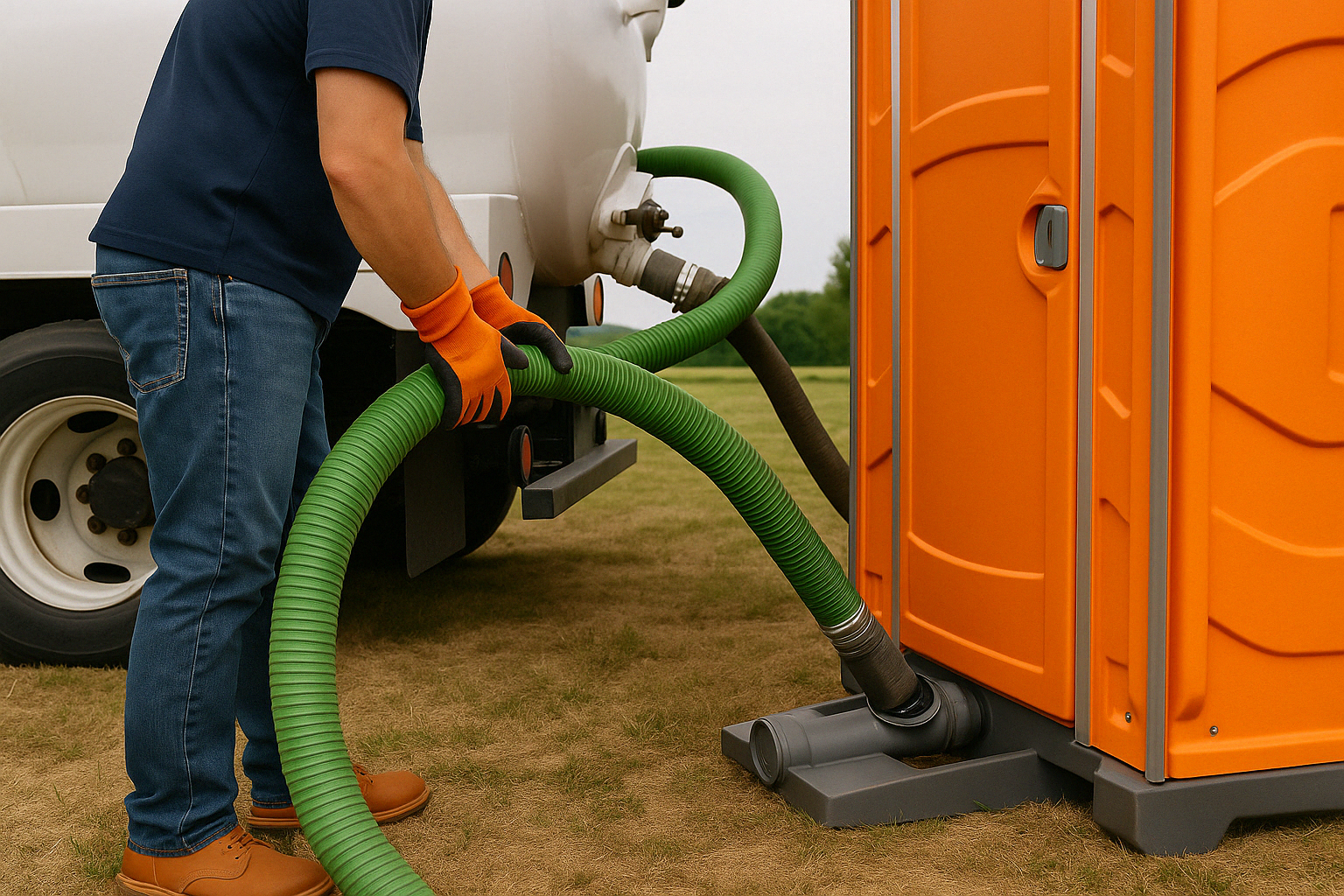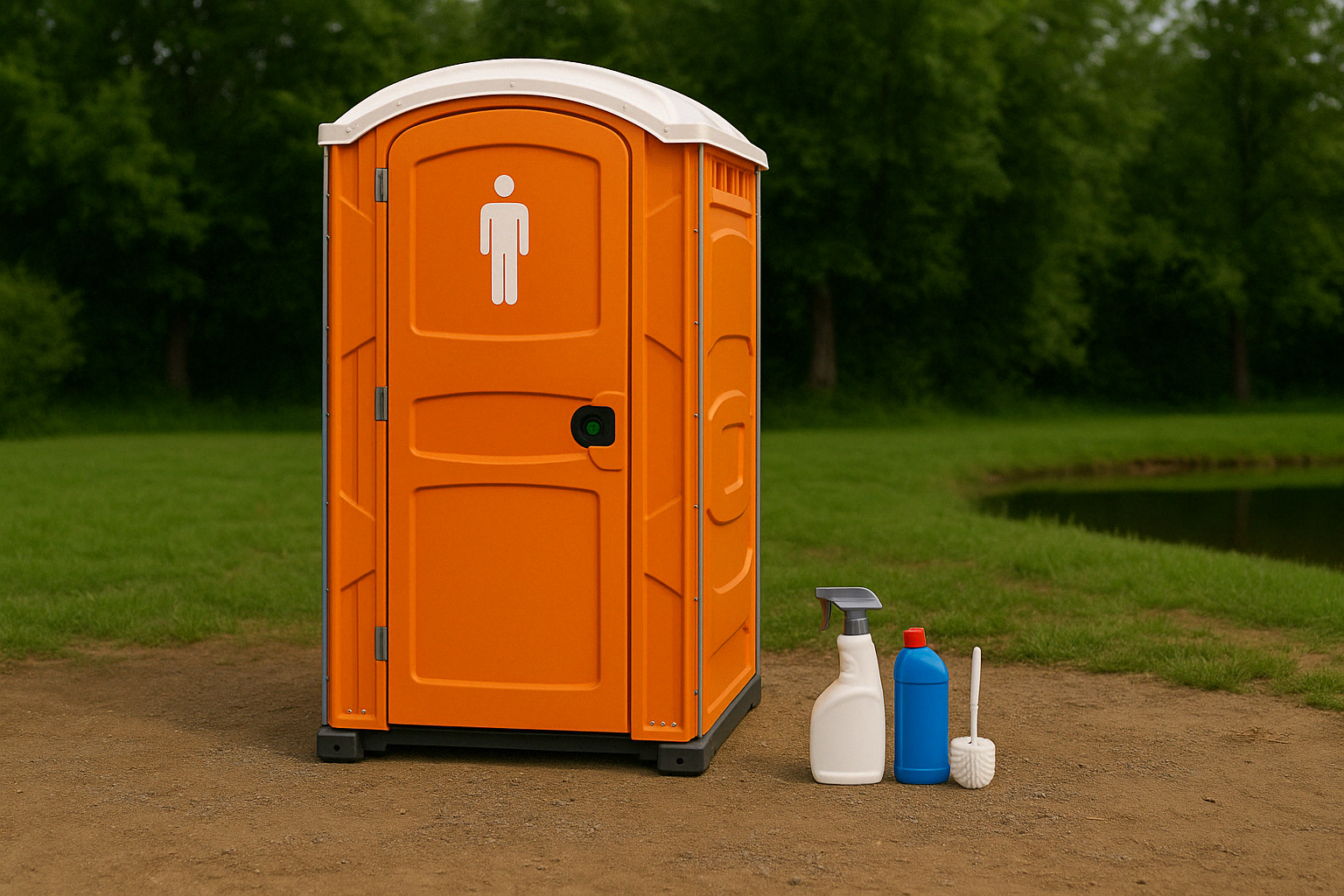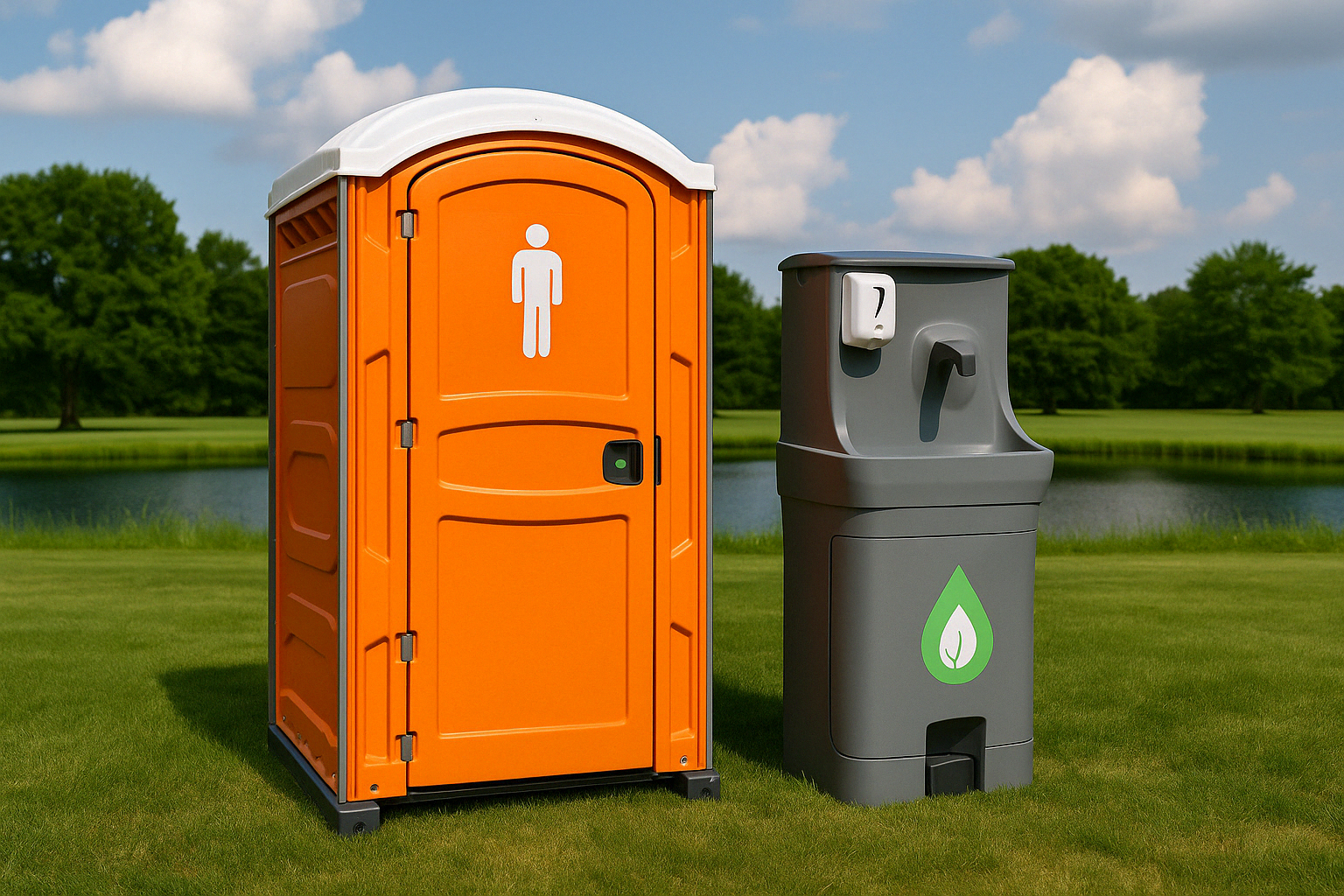
Construction Sites and Portable Toilets: A Must-Have for Worker Safety and Productivity
November 27, 2024
Construction sites are dynamic environments, bustling with workers, machinery, and constant movement. Amidst all the activity, it’s easy to overlook one crucial aspect: proper sanitation. Portable toilets are not just a convenience—they are a necessity on any construction site. Providing clean, accessible sanitation facilities ensures the well-being of workers, improves productivity, and aligns with health and safety regulations.
The Importance of Sanitation for Construction Workers
Construction is physically demanding work, often performed outdoors in all weather conditions. Workers need access to clean and sanitary toilet facilities to maintain their health and comfort throughout the day. Lack of proper sanitation can lead to various issues, from decreased productivity to more serious health risks. Ensuring portable toilets are available on-site addresses these concerns and promotes a more efficient, safer work environment.
Health and Safety Regulations
One of the main reasons portable toilets are essential on construction sites is compliance with Occupational Safety and Health Administration (OSHA) regulations. OSHA mandates that employers must provide "sanitary and readily accessible toilet facilities" for workers. The number of units required depends on the number of workers, but the rule is clear: no construction site should operate without adequate sanitation facilities. Failure to comply with these guidelines can result in hefty fines and penalties, not to mention increased health risks for employees.
Worker Health and Hygiene
Sanitation plays a pivotal role in maintaining the health of construction workers. Working long hours in harsh conditions can lead to dehydration, fatigue, and heat stress, all of which require frequent restroom breaks to alleviate. Without access to clean portable toilets, workers may resort to unsanitary alternatives, which increases the risk of infections, contamination, and illness.
Providing clean portable toilets ensures that workers can comfortably stay hydrated and take breaks without compromising hygiene. These facilities reduce the spread of disease and contribute to overall job satisfaction, which in turn enhances worker morale and performance.
Boosting Productivity on Construction Sites
Portable toilets are not only about meeting legal requirements—they also have a direct impact on productivity. When workers have to leave the site to find restroom facilities, valuable time is wasted. By providing adequate portable toilets on-site, you minimize disruptions and ensure that workers can quickly return to their tasks. This convenience can lead to faster project completion and reduced downtime, ultimately saving both time and money.
Environmental Considerations
Modern portable toilets have come a long way in terms of sustainability. Many units are designed to minimize water usage and are built with environmentally friendly materials. Some advanced models even use solar power or waterless designs to reduce the environmental footprint of construction sites. These eco-friendly options not only help companies meet environmental standards but also demonstrate a commitment to sustainable practices, which can enhance a company’s reputation.
Types of Portable Toilets for Construction Sites
Portable sanitation solutions for construction sites are designed to withstand heavy use and harsh conditions. Here are some common types:
1. Standard Portable Toilets:
Basic units that offer a simple, no-frills option for worker sanitation.
2. Flushable Portable Toilets:
These units provide a more comfortable experience with a flushing mechanism and a handwashing station.
3. Solar-Powered Portable Toilets:
Energy-efficient units that use solar panels to power lights, ventilation, or even flushing systems.
4. Handicap-Accessible Toilets:
These larger units are designed to accommodate workers with disabilities, ensuring compliance with the Americans with Disabilities Act (ADA).
Frequency of Maintenance
Providing portable toilets is just the first step. Regular maintenance is crucial to ensuring they remain clean and functional. Construction sites typically require frequent cleaning and restocking of toilet supplies due to the high number of users. Service providers should be scheduled to clean and pump the units at least once a week, though this frequency may increase depending on the number of workers and usage levels.
Employee Morale and Satisfaction
Working in construction can be exhausting, and the availability of clean, well-maintained portable toilets can make a significant difference in employee morale. Workers who feel that their basic needs are being met are likely to be more motivated and focused. Providing adequate sanitation is a way to show workers that their health and comfort are valued, which contributes to a positive work environment.
Portable Toilets and Large Construction Projects
For large-scale construction projects, such as commercial buildings or infrastructure developments, multiple portable toilets are essential. The placement of these units across the site should be strategic, ensuring they are within easy reach for all workers. In cases of extended projects, some companies opt for portable restroom trailers, which offer more amenities such as flushing toilets, running water, and even climate control.
The Role of Portable Toilets in Site Safety
Portable toilets also contribute to overall safety on construction sites. Workers who have to leave the site in search of restrooms are more likely to encounter off-site hazards. Keeping sanitation facilities within the site’s perimeter reduces the risk of accidents and keeps the workforce within the safety of a controlled environment.
Cost-Effectiveness
Investing in portable toilets is a cost-effective solution for construction sites. The convenience and compliance with regulations far outweigh the costs of renting and maintaining these units. Additionally, by improving productivity and reducing health risks, portable toilets can prevent costly delays and workers taking time off due to illness.
Conclusion
Portable toilets are an indispensable part of any construction site. They ensure that workers have access to clean, safe, and convenient restroom facilities, which directly impacts their health, productivity, and morale. By adhering to health and safety regulations, providing proper maintenance, and considering environmentally friendly options, construction companies can create a more efficient and comfortable work environment for their employees.
Investing in portable sanitation isn't just about compliance—it's about supporting the workforce that keeps construction projects moving forward. So, the next time you step onto a construction site, remember: those portable toilets are more than just a convenience—they're a must-have for a well-functioning, safe, and productive worksite.
Tap to share!
Latest Posts







